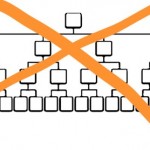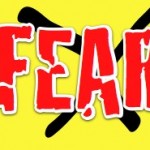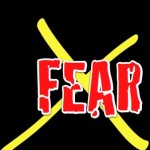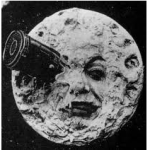We look at hierarchy and how to change it as we continue our series on creating the no-fear environment for the 21st century organization for post-digital workers and managers in response to our invitation from ‘No Fear’ author Pekka Viljakainen. In order to create an organization that combines the two most fundamental elements of […]
Don’t Climb, Grow! Success in the Systemic Organization
We continue our series on creating the no-fear environment for the 21st century organization for post-digital workers and managers in response to our invitation from ‘No Fear’ author Pekka Viljakainen. What does a systemic organization look like? Let’s look first at the shape of the organization, i.e. the design. What kind of organization are we […]
Drive Out Fear by Learning to Think Systemically
Continuing our series in response to invitation by ‘No Fear’ author Pekka Viljakainen to outline how we would drive out fear from the workplace and how we would accommodate the post-digital generation of talent. At Intelligent Management, we support organizations in driving out fear through the adoption of the Decalogue™ methodology. This is a unique […]
No Fear in the Workplace – Making it Happen
We were invited by Pekka A. Viljakainen, author of ‘No Fear’, a book that addresses managing and leading a new generation of post-digital talent, how we would go about driving out fear from the workplace. The following posts are our response on achieving No Fear through a systemic organizational design and management methodology. Digital […]
Change: Intuition, Understanding and Knowledge
Continuing our series on change. We live in an extraordinarily complex, post-digital world, where interdependencies and interconnections multiply at an ever-increasing speed. The cause-effect relationships that govern the world as we experience it create a super intricate ‘network of networks’ and we have a very limited understanding of the underlying properties of these networks and […]
Network of Networks (continued): The Intrinsic Risk of Super Hubs
When an enterprise is successful and grows in size, there is inevitably an increase in the number and quality of interdependencies, i.e. exchanges with other parts of the network of enterprises it is part of. These can include information, money, manpower, and goods etc. This leads to a double level of complexity: one level is […]
Network of Networks: Avoiding Catastrophe Through a Systemic Vision of Enterprises
We’re back for 2012, kicking off with a look at the ‘too big to fail’ fallacy from a scientific point of view this week. We’ll be following this up with a series on why people find it so hard to change, and a response to ‘No Fear’ author Pekka A. Vilijakainen and his invitation to […]
Can Ecosystems Show How to Fix the Euro?
This post, by Dr. Giovanni Siepe, is our last before the holidays. We wish you all a very happy holiday season, and we’ll be back in 2012! In an article by Debora MacKenzie in the New Scientist magazine entitled ‘Can Ecosystems Show How to Fix the Euro?’, the eurozone is analyzed as a complex networked […]
Skills vs. Culture in Education – Developing a Solution
In our previous post we looked at the conflicting positions of a school that emphasizes skills vs. a school that emphasizes culture. The ‘skill school’ protects the need to develop ability to apply skills in a work environment, whereas the ‘culture school’ protects the need to develop the ability to think and analyze in an […]
Reality is not made up of cycles but complexity – Innovation and Education Part 2
Prof. Pagano is Associate Professor of Experimental Physics at University of Salerno, Italy. His considerations here provide the backdrop for verbalizing the core conflict in which educational institutions, schools and universities are immersed. We will analyze that core conflict in our next post. Cycles We tend to see recursive patterns in all aspects of life. […]












